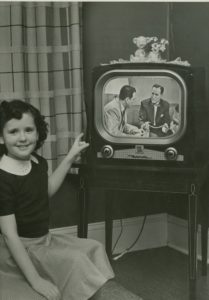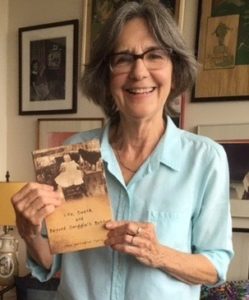 Day 1
Day 1
The magicians stare at me from across the room. I’m afraid they expect too much. I try to think of something that will amuse them, but I don’t do tricks, can’t draw or sing. So I put words together in the hope that they’ll see I’m a person of consequence.
I don’t feel cursed by their stare. I’ve known them a very long time, a few from childhood. They’re patient. They’ve worked and practiced tirelessly to become wondrous. Even though I know some of their secrets, their feats are still magical to me. But I’m afraid that I’m not adequate, unworthy to be in their company, that I won’t live up to their expectations. I’m afraid that I’m more ordinary than the person they think me to be.
They hold skulls, crystal balls, and canes. They’re accompanied by scantily-clad women, imps and phantoms. One is known to ride a white dragon.
Day 2
If I had a magic power it would be invisibility. I’ve thought about this for a very long time but my efforts to achieve invisibility are less than successful. I get closer to my goal as I age as few people notice the elderly. I don’t think I behave elderly or think elderly (maybe a bit). When people get to know me they often think I’m younger despite my looks. (This may be the result of immaturity.) When I was young, I wanted to look older. I’m not pleased with my looks but they’re better than some. Perhaps you have to wait till you die to become an invisible spirit, one that watches over it’s loved ones and laughs at the folly of the living. Sometimes I feel my mother and grandmothers hovering about me.
I keep the small case with my father’s close-up act on a high shelf waiting for one of his descendants to show an aptitude for magic. Sometimes I hear my father’s voice. Perhaps he and the women in my family have already reincarnated and I don’t recognize them. But surely I would; I’ve recognized others.
Perhaps I’m more invisible than I think.
Day 4
Magicians are obsessive. They’re perfectionists. They have to be. They plan for occasions when something goes wrong but they practice practice practice so that won’t happen. Like them I hope for the best, but plan for exceptions. The problem is that my plans don’t always work out and most of the time I’m left to fly by the seat of my pants, something a magician would rarely resort to. Past success with this practice should raise my confidence, but it isn’t a secure feeling.
I accept that it’s life as it is. We must be flexible—in body and spirit. I hope that I won’t become rigid in my dotage—which I’m facing with immediacy. I see what happens when you can’t roll with the times and your magic declines. It’s not a pretty sight.
Day 5
Magic happens everyday. Much of it goes unnoticed: the slivers of sunrise that escape from behind your bedroom curtain, the mischievous smile on a child who’s discovered trouble, fiery moonlight reflected in a glass of wine on the windowsill. There are times when you should have been killed but were miraculously saved. There are times that someone phones at the moment you think of them. Such magic doesn’t call for men in capes or tuxedos, women in sparkly body suits or gypsy scarves to enable it. It’s in the air, in the aura that surrounds you. We may not be Thurston or The Great Oremor, but we can occasionally command magic.
Even me, pop.
Day 6
Magicians need a lot of upkeep. Crystal balls have to be polished, cards coated and dusted with talcum. Doves and rabbits have to be fed, their cages cleaned. Silks must be washed by hand; costumes kept clean and unwrinkled. The tasks are never-ending. Most magicians are well-groomed, their grooming as obsessive as the rest of their lives. Of course there are some who are slovenly. They live with paraphernalia precariously piled (say that three times), books and papers, animal droppings. They’re too busy studying, practicing, inventing, and communicating with other magicians to remember to bathe.
Then there are gypsies…
Day 7
My father’s wand was broken and tucked into his coffin by fellow magicians. We may not live in one of The Great Eras of Magicians but it’s not the last we’ll see them. It certainly isn’t the end of magic. Even though magic isn’t reliable and never seems to happen when you want it, it’s all around you. It occurs on its own terms. Just when you’re on the verge of not believing: Bam! It hits you. It doesn’t coddle the disbelievers, those who grasp at explanations; it does it’s best to perplex them. It may transform your day, your thoughts, your relationships, but it’s prudent to stay open, for it occurs in unlikely places: a simple tune, an old book…It may be lurking under your bed, or in your pocket. It’s in the wind, the trees, the night sky.
Abracadabra, Sim-sala-bim.


 Day 1
Day 1